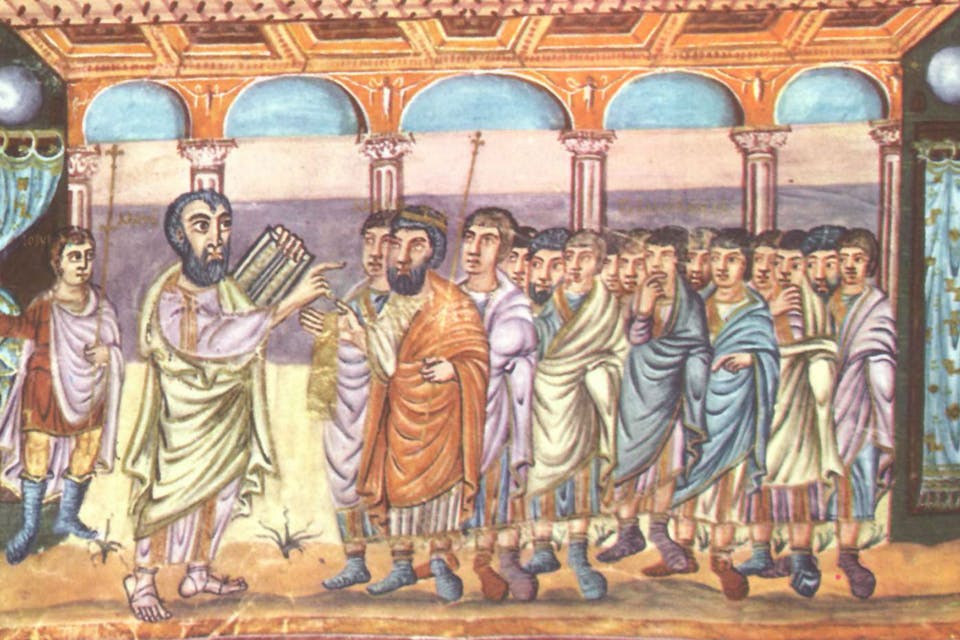
July 27, 2017
The One Time When Moses Speaks in His Own Words
Deuteronomy erases the separation between leader and led; for better or for worse, they're yoked together.
Moses, we are told at the very beginning of the last book of the Torah, spoke “these words” to the people Israel (Deuteronomy 1:1). Unlike the words in the other four books, which are presumed to be the words of God as conveyed through Moses, Deuteronomy consists explicitly of the words of the prophet himself.
Many commentators have marked this difference—and the difference that it makes. For example, the Talmud rules that the long rebuke of the Israelites in Leviticus (26: 14-43) may not be interrupted when read as part of the synagogue service, but the rebuke in Deuteronomy (28: 15-68) may be interrupted—on the grounds that the former, although written by Moses, was dictated by God, while the latter (and longer one) was said only by Moses. Among other such repetitions-with-variations in Deuteronomy, the most famous may be its slightly altered version of the Ten Commandments (5: 1-21). Another is the story of the formation of Israel itself as told by Moses in the book’s opening chapters, which betrays some striking differences from the story as presented to us in previous books.
What message does Moses wish to convey in both repeating and changing the same information? Of course there is no single answer to this question, but from a few of the revisions at the very beginning we can identify one important message that he means to communicate to Israel. It has to do with responsibility and leadership. Thus: